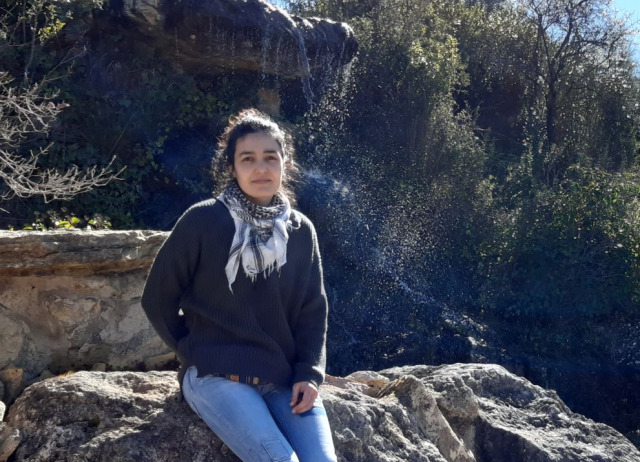The International Biogeography Society (IBS) awards its prize to the thesis researched by Antonia Salces at the IPNA
The Doctoral Thesis Prize of the International Biogeography Society (IBS) in this 2021 edition has been awarded to Antonia Salces Castellano, former member of the Ecology and Evolution en Islas group at the IPNA-CSIC. Her thesis is entitled Spatial structure of biodiversity: local and regional patterns in an insular ecosystem. The research work was carried out between 2015 and 2020 under the direction of Brent Emerson and Paula Arribas.
In her thesis, Antonia Salces demonstrates that limitation of beetle fauna dispersal due to becoming flightless (through wing loss) is an important driver of their diversification between different species and also of community structure. Moreover, this applies to a large proportion of these insects inhabiting laurel forest in the Canary Islands. At an archipelago scale, this is mainly due to isolation caused by the intervening sea barriers. For species with limited dispersal capacity and restricted climatic tolerance, the interaction between topography and climate plays a key role in species diversification within each island. This gives rise to patterns of isolation at a very small scale. Furthermore, she studied the possible response of this habitat to climate change, using genetic data from a beetle species normally inhabiting laurel forest.
Studies such as this one by Antonia Salces provide vital new data to aid in conservation, since they are aimed at understanding the origin and structure of biodiversity, as well as the underlying processes that sustain it. This information is even more important on oceanic islands such as the Canaries, where a unique display of biodiversity is under threat.
Antonia Salces is currently on a joint postdoctoral stay shared between the University of Liège and the Université Libre de Bruxelles. She continues to collaborate with the Ecology and Evolution on Islands group at the IPNA-CSIC.
The Doctoral Thesis Award was created by the IBS in 2013 to recognise and reward outstanding work carried out by PhD students and recent PhD graduates and is open to those completing their theses in the three years prior to the call. The prize jury takes into account factors such as "quality of the written synopsis, originality, potential of the work and substantial contributions to the field of Biogeography".
